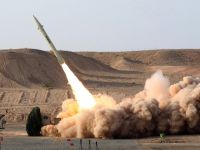Palestinian Minister of Religious Affairs and Endowments, Mahmud al-Habbash, unveiled on Saturday the details of an Egyptian-Palestinian agreement to open Rafah crossing twice a month in order to facilitate the passage of Gazans on pilgrimage to Mecca.
Al-Habbash told Ma'an that he visited Egypt recently and successfully concluded an agreement with Egyptian authorities to open Rafah crossing once every two weeks in order to allow pilgrims to leave the Gaza Strip for Umrah.
Umrah is similar to Hajj, except that it can be undertaken by Muslims at any time of year.
Al-Habbash added that the agreement will be implemented starting from the middle of December and will continue until next Ramadan, which falls in June and July of the Gregorian calendar.
Al-Habbash also pointed out that the openings will be coordinated to so that pilgrims leaving the Gaza Strip and those entering will come and go on the same day.
There have been frequent closures of the Rafah terminal in recent months due to political unrest in Egypt and violence in the Sinai peninsula.
After the July coup, which deposed president Mohamed Morsi, Egypt's army has repeatedly closed the Rafah border crossing and destroyed hundreds of tunnels that Gazans used for years to import fuel, building materials and other goods.
The Rafah crossing has been the principal connection between Gaza's 1.7 million residents and the outside world since the imposition of an economic blockade by the State of Israel beginning in 2007.
The blockade has severely limited the imports and exports of the Gaza Strip and has led to frequent humanitarian crises and hardship for Gazans.
Al-Habbash told Ma'an that he visited Egypt recently and successfully concluded an agreement with Egyptian authorities to open Rafah crossing once every two weeks in order to allow pilgrims to leave the Gaza Strip for Umrah.
Umrah is similar to Hajj, except that it can be undertaken by Muslims at any time of year.
Al-Habbash added that the agreement will be implemented starting from the middle of December and will continue until next Ramadan, which falls in June and July of the Gregorian calendar.
Al-Habbash also pointed out that the openings will be coordinated to so that pilgrims leaving the Gaza Strip and those entering will come and go on the same day.
There have been frequent closures of the Rafah terminal in recent months due to political unrest in Egypt and violence in the Sinai peninsula.
After the July coup, which deposed president Mohamed Morsi, Egypt's army has repeatedly closed the Rafah border crossing and destroyed hundreds of tunnels that Gazans used for years to import fuel, building materials and other goods.
The Rafah crossing has been the principal connection between Gaza's 1.7 million residents and the outside world since the imposition of an economic blockade by the State of Israel beginning in 2007.
The blockade has severely limited the imports and exports of the Gaza Strip and has led to frequent humanitarian crises and hardship for Gazans.


![Palestinians wait at the Rafah border crossing in the southern Gaza Strip on September 18, 2013 for a brief opening for special cases after the Egyptian authorities closed the crossing 'indefinitely' the day before for security reasons. [Mohammad Abed/AFP] Palestinians wait at the Rafah border crossing in the southern Gaza Strip on September 18, 2013 for a brief opening for special cases after the Egyptian authorities closed the crossing 'indefinitely' the day before for security reasons. [Mohammad Abed/AFP]](/sites/default/files/styles/d06_standard/public/im/misc/180934525.jpg?itok=pTmxXsYd)





